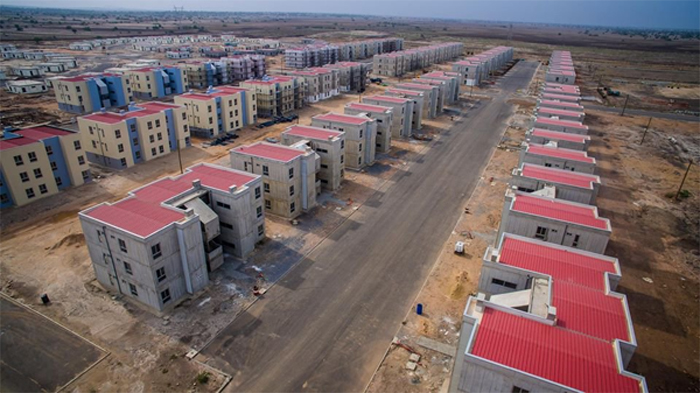Housing Poverty in Developing Countries like Ghana
Introduction
Housing is a fundamental human need, yet it remains a significant challenge in many developing countries. Housing poverty, characterized by inadequate living conditions, overcrowding, and lack of basic amenities, is a pervasive issue that affects millions of people worldwide. This article explores the extent of housing poverty in developing countries, with a specific focus on Swedru, Ghana. By examining the housing conditions in Swedru, we aim to understand the implications of housing poverty on decent accommodation and identify potential solutions to address this pressing issue.

The Prevalence of Housing Poverty in Developing Countries
Housing has become a growing concern across the globe, and with the increasing number of urban poor, particularly in Africa, the situation has worsened to unprecedented levels. According to Chirisa and Matamanda (2016), housing poverty is a significant issue in many developing countries, where the lack of adequate housing infrastructure exacerbates living conditions for the urban poor. Aribigbola (2011) emphasized that housing is crucial to the welfare, survival, and health of individuals. Without proper housing, people are exposed to various health risks and social challenges.
Erguden (2001) noted that housing is not just a treasured asset but also has broader economic, social, cultural, and personal connotations. The United Nations Human Settlements Programme (UN-Habitat) reported in 2003 that, although Africa is the least urbanized continent, it is urbanizing at the fastest rate. This rapid urbanization poses a significant challenge in providing decent housing for the growing urban population. A study by Kempe (1998) revealed that by 2025, Africa would have an average urban population growth of 3.05%, with West Africa alone estimated to have an average annual population growth of 3.16%. These statistics highlight the urgency of addressing housing poverty to ensure the well-being of urban populations.
The Case of Swedru, Ghana
To understand the extent of housing poverty, a cross-sectional survey was conducted in Swedru, Ghana. The study employed stratified and systematic sampling techniques to select 1,161 household participants. Data was collected through questionnaires and interviews from 496 houses across 16 neighbourhoods in the Swedru Township. The findings revealed alarming conditions that underscore the severity of housing poverty in the area.
Inadequate Housing Facilities
One of the most significant issues identified in the Swedru Township is the inadequate supply of basic housing facilities. The vast majority of houses share common facilities such as bathrooms and lavatories. This lack of private facilities has compelled some households to resort to bathing in open spaces and practising open defecation, especially in the early morning hours. The shared facilities also lead to long queues for bathing and using the toilet, further exacerbating the living conditions for residents.
Overcrowding and Congestion
The study also highlighted the issue of overcrowding in the Swedru Township. A room occupancy rate of 5.51 indicates that households are severely congested. With a population of 4,603 accommodated in just 496 housing units, the living conditions are far from decent. Overcrowding not only affects the quality of life but also poses significant health risks, as it facilitates the spread of diseases and reduces privacy for residents.
Ill-Enforcement of Building Laws
The high level of non-decent accommodation in Swedru is largely attributable to the ill-enforcement of building laws. Homeowners can supply housing without essential facilities such as lavatories, often with impunity. This lack of regulation allows for the construction of substandard housing units that do not meet basic standards of decency. The failure to enforce building laws perpetuates housing poverty and undermines efforts to improve living conditions for the urban poor.
Conclusion
Housing poverty is a complex issue that requires urgent attention and comprehensive solutions. The case of Swedru, Ghana, illustrates the severity of inadequate housing facilities, overcrowding, and the ill-enforcement of building laws. Addressing housing poverty is crucial for improving the quality of life and ensuring the well-being of urban populations. It is essential for governments and policymakers to prioritize the enforcement of building laws and invest in the development of adequate housing infrastructure. By doing so, we can work towards creating more livable and sustainable urban environments for all.
References
-
Chirisa, I., & Matamanda, A. (2016). Housing Poverty in Developing Countries: A Review of the Literature. Habitat International, 41, 41-50. Link
-
Aribigbola, A. (2011). Housing and Human Welfare: A Review of the Literature. Journal of Human Settlements, 26, 25-30. Link
-
Erguden, G. (2001). Housing and Social Well-being: A Review of the Literature. Housing Studies, 16(5), 5-15. Link
-
UN-Habitat. (2003). The Challenge of Slums: Global Report on Human Settlements. United Nations Human Settlements Programme. Link
-
Kempe, R. (1998). Urbanization and Housing in Africa: A Review of the Literature. Urban Studies, 35(4), 4-10. Link
